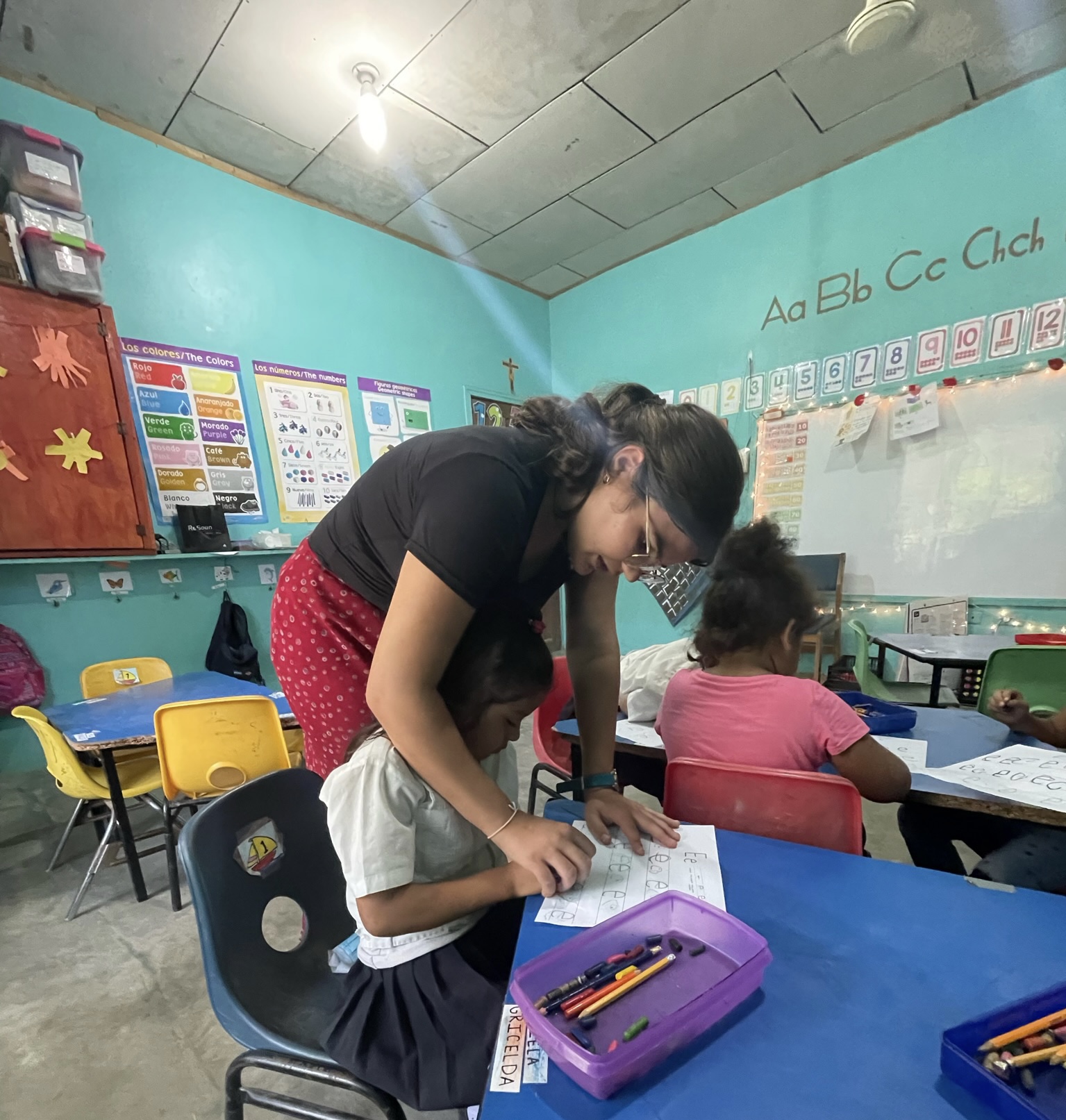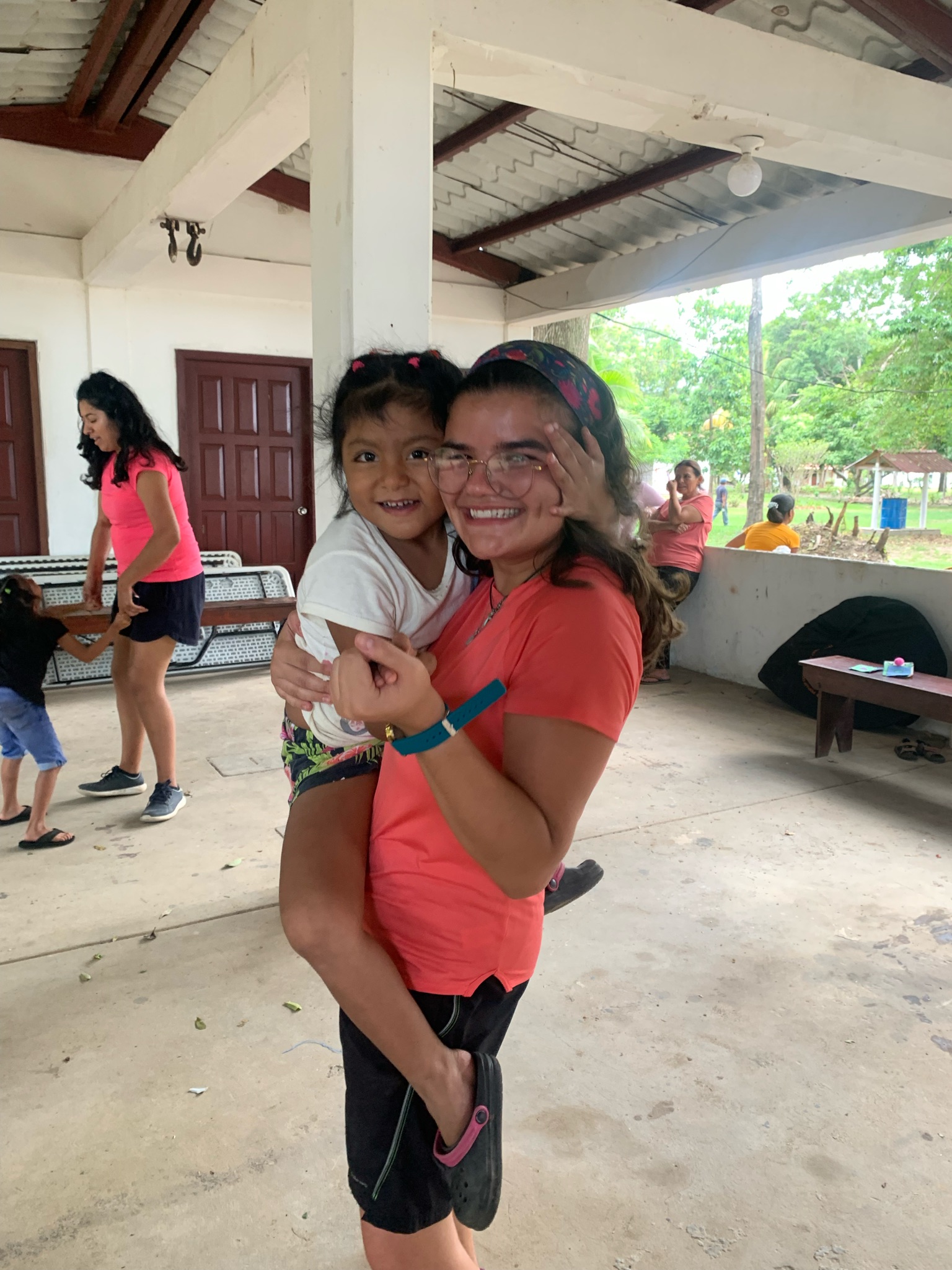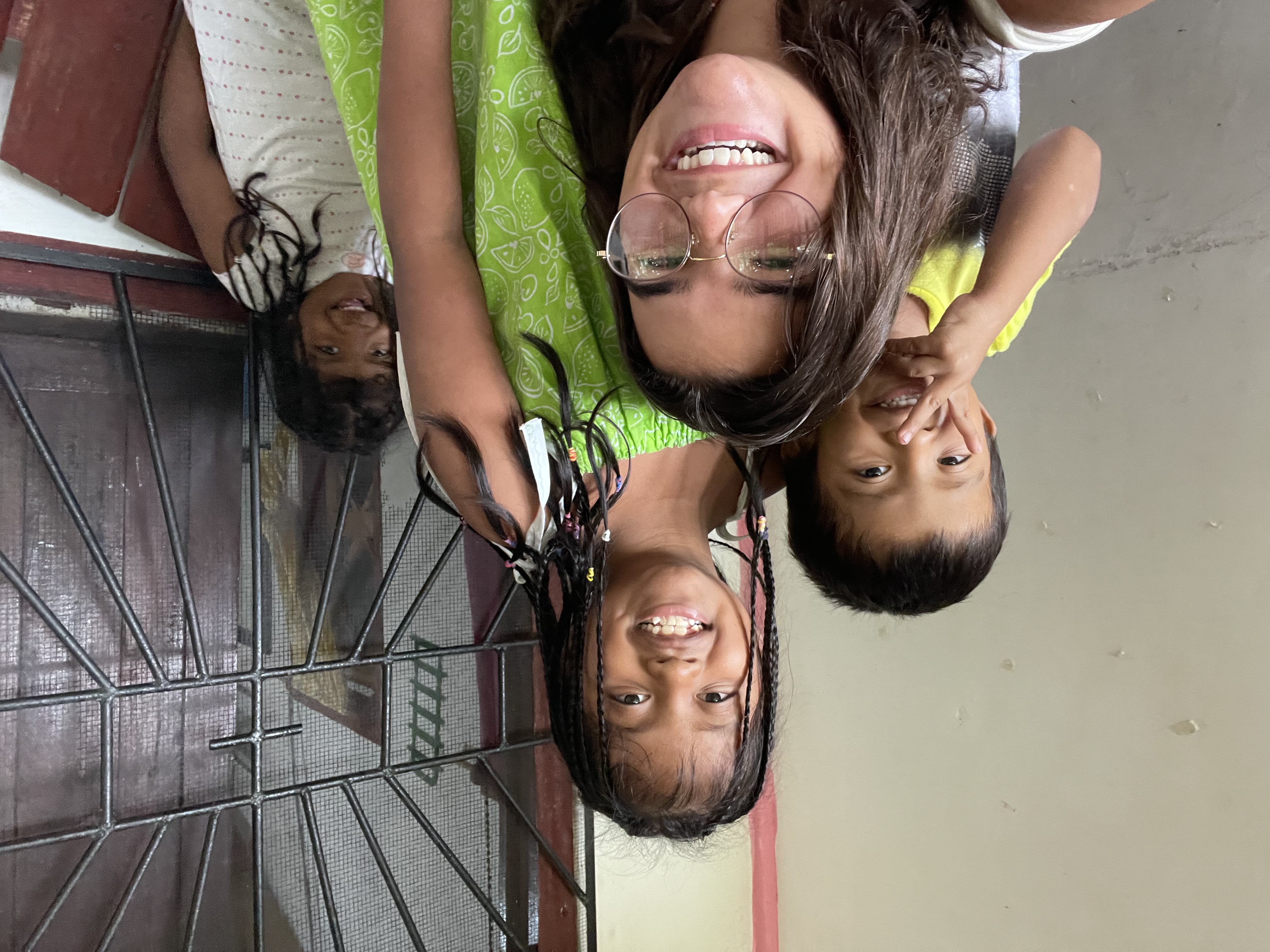Finca del Niño, Child’s Farm, is a Catholic Mission located in the town of Trujillo, Honduras. The Finca serves as a home for up to 50 children, a school, and a medical center for the local populace. Last summer, Conway School of Nursing student Olivia Meyers volunteered with the Mission. The interview below is about her time In Honduras.
What brought you to Catholic to study nursing?
Olivia Meyers: My mom is a nurse and I've always admired her. So I always had nursing in the back of my mind. In high school, I was interested in my anatomy classes and knew I was interested in nursing. I loved Catholic when I visited, and they happened to have a nursing program too, so I applied to that. I don't have a crazy story about how I got here. I just knew it was a place I would like to be. I also knew some people in the nursing program who really enjoyed it.
Are you studying anything else besides nursing?
Olivia Meyers: I’m studying theology and also Spanish for health care. I want to work on my Spanish to help me with my work. I'm also studying theology so that maybe one day I could work with a Catholic school or a church with health care as well.
What did your trip to Honduras entail?
Olivia Meyers: I applied through the summer service program here at campus ministry. Once I was accepted, I had training for two weeks on-site to get acclimated to the environment and learn about the children's home. It’s a children's home with the goal of reunification. There are children who live on the Finca, and there are people in the surrounding neighborhoods who are also served by the Finca, the clinic, and the school. There are also some activities hosted by the Finca that the neighboring towns can take part in.
When I went I thought I would be teaching English in addition to doing some nursing work, but I ended up teaching kindergarten. I was there for the summer as a substitute for a long-term missionary who was there for at least a year and a half. As a summer volunteer, I went down with two others, and we substituted for these teachers as they took their family vacation.
How did you hear about this opportunity?
Olivia Meyers: I heard through Harrison Hanvey in the campus ministry office and also through Kim Walsh, who is the nursing coordinator for the School of Nursing. At the time, I didn't realize it was the same opportunity or that I could go through campus ministry summer of service to do this opportunity. I was really interested in it because Kim reached out to me and my friend specifically to say that this is a nursing opportunity. And I found out that campus ministry would sponsor me through stipends and through the program. Then it all came together.
What were you doing in the nursing ward there?
Olivia Meyers: That was cool. I was weighing babies, welcoming patients, counting out medications, and giving them to them in reused bottles, labeling bottles, and teaching them how to use the proper dose and time of day and what it's for. A lot of patients had a lot of medication, so going through each medication and telling them how to use it. That was typically how it would go in a day.
Were there any lessons you took from Catholic that you used in Honduras?
Olivia Meyers: A few of the medications I recognized from learning them in class. The biggest thing we learned is patient etiquette. I've had some really good professors that have taught about the dignity of the patient, and these people were getting either free or really reduced prices of health care. We learned how to address them by name, look them in the eye make sure that they know that they're safe and loved in this clinic because we're there to serve them. That was something that I've taken away from Catholic. The value of the patient and putting yourself in their shoes. Empathy is a big thing that we've learned, especially from Dr. Bigony and her community health class.
What should Catholic students know about what life is like in Honduras?
Olivia Meyers: It's very different than the United States. Even the role of the nurse is different. There is a whole other world of health care out there that you might not have experienced in the United States. For example,I went to the hospital one day to accompany a patient with the other nurse, and we had to wait for hours just to be seen for a follow-up appointment. That was crazy because everyone there was willing to wait. In the United States, everyone's so busy and wants to get things done quickly. But there, they're just willing to wait because their health care is important to them.
Do you think you will be returning to Honduras?
Olivia Meyers: I'm not sure. It was a difficult experience. It was definitely worth it. But I'm not sure if my time allows it. I don't know if I will have to do an internship or a work shift in a hospital next summer. It's a wonderful program and I would recommend that other people go
What was the most difficult aspect of Finca del Niño?
Olivia: Meyers: I think the hardest part was being away from home. Being homesick and being so far away. It was also a lot of adjustments, living with the missionaries. It was the summer in Honduras, and there was no AC, so it was hot! We did get fans, so that was nice.
Olivia Meyers: I think the hardest part was being away from home. Being homesick and being so far away. It was also a lot of adjustments, living with the missionaries. It was the summer in Honduras, and there was no AC, so it was hot! We did get fans, so that was nice.



